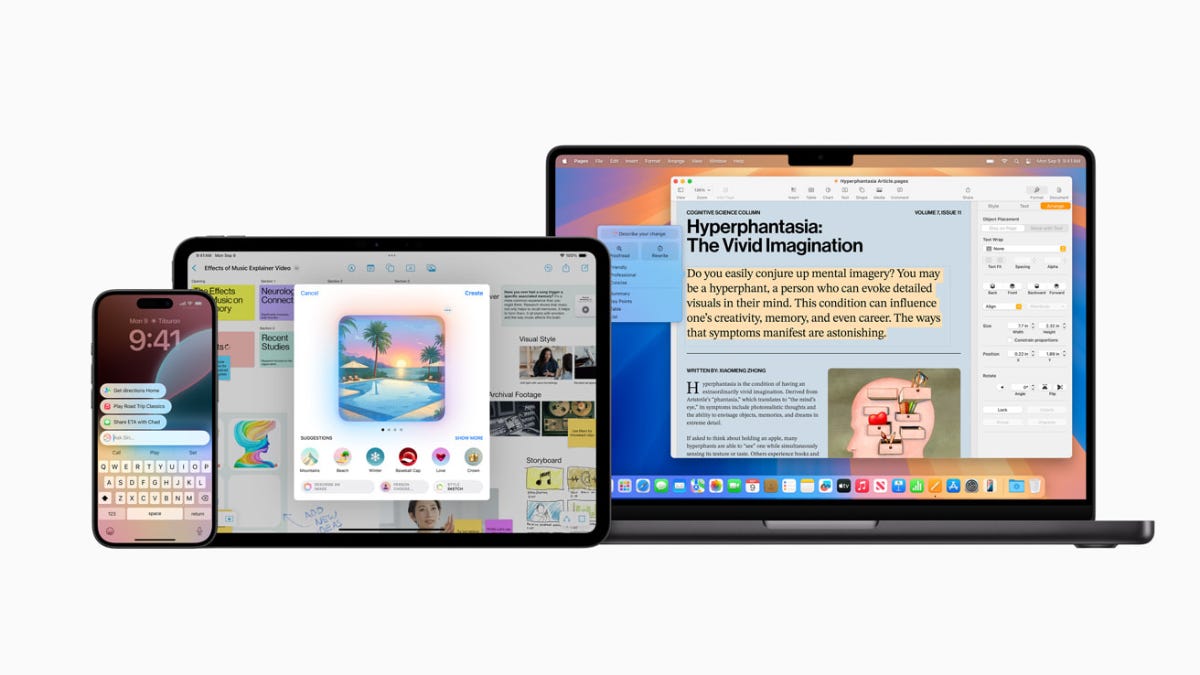iOS Is on a Collision Course With iPadOS, if This Rumor Is True
Mid-last week, a rumor started going around that iOS 19 will bring some interesting features to iPhone that were once reserved only for Mac and iPad. On the list are a new version of Stage Manager and enhanced external monitor support that will give iPhone limited desktop capabilities similar to Samsung Dex. If true, the update would bring iOS closer to iPadOS than ever before, which begs the question: If iPhone is becoming more like iPad, where does that leave iPadOS, and did the two operating systems ever need to split off in the first place?
To understand what’s happening, let’s go back in time a bit. Up until 2019, iOS powered the iPhone andthe iPad. In fact, this is why iPad got the reputation for being just a big iPhone. Functionally, they were almost identical, save for a couple tablet-only gestures and iPad’s historically silly lack of native calculator and weather apps, but I digress.
Then after nearly a decade, Apple tore the devices apart, giving them their own individual operating systems dubbed iOS and iPadOS, respectively. Though their core foundations are still rooted in Unix, the split was meant to differentiate the two device categories, allowing the iPhone team to focus on the most mobile aspects of the operating system while the iPad team added tablet-only features, like Apple Pencil support, better multitasking with Split View + Slide Over, and Stage Manager.
No longer just an iPhone on a bigger screen, iPadOS broadened iPad’s user base beyond content consumers to also include creators and business professionals, helping the tablet feel like a distinct device with its own purpose in the Apple ecosystem. Unfortunately, this vision would fall short as ongoing software limitations hampered iPad’s overall performance when pitted against its Mac counterpart, despite both devices running on the same M-series chips.
Today, even with a growing list of features that set iPadOS apart, the experience still feels very much like a big iPhone that’s great for certain tasks but lacking when trying to get any “real work” done like its Mac cousin. In many cases, it’s still tough to see why Apple ever split iPadOS from iOS at all if they’re designed to have such similar functionality.
A Bridge Between Product Categories
While the lines between iOS and iPadOS are about to blur even more with iOS 19, a new device is said to be coming next year that will further complicate Apple’s mobile OS hierarchy — the fabled iPhone Fold.
Apple’s foldable phone isn’t like their other devices. One part iPhone and one part iPad, it’s the bridge between two unique product categories that have gone so far out of their way to be different that they run on separate platforms. But if iOS is strictly for iPhones and iPadOS is all about tablets, what OS should power the device in the middle?
Though I doubt Apple will ever merge iPadOS back into iOS to create one unified operating system again – just the way Jobs intended – the fact that a device exists between them with overlapping features makes the split look silly in comparison. At the same time, I also doubt Apple launches a foldOS specifically to run the “iPhone Fold” or whatever they decide to call it. If that were the case, they probably wouldn’t be adding so many multitasking features to iOS 19 this year.
In fact, some outlets like 9to5Mac suspect that iOS 19 is getting an iPad-like upgrade because of iPhone Fold. Simply put, an iPhone with a tablet-sized screen will need enhanced features that simply don’t exist in iOS 18 today. So along comes Stage Manager to replicate iPad’s multitasking UX by allowing users to display multiple apps, plus desktop support, which naturally carries over to complete the package.
What’s Happening to iPadOS?
If iOS 19 is slated to adopt many of the features that run on iPadOS today, the split away from iOS looks even sillier in comparison. Why not just keep the platforms together like they were intended?
Well, Apple might have an answer. As iOS moves closer to iPadOS, the latter is also rumored to move closer to macOS this year.
iPadOS 19 will allegedly focus heavily on productivity enhancements, something myself and many users have clamored for for years. If the rumor mill shakes out, iPad will receive Stage Manager 2.0, the next iteration of Apple’s new multitasking structure for iPad and Mac. Users will also be treated to a Mac-like menu bar that pops up when connected to a Magic Keyboard.
It’s anyone’s guess what other features will show up this spring, but if they help today’s Apple Silicon-powered iPads get closer to replacing a Mac – or even just replicating their productivity capabilities – we’ll all be better off for it.
The Future of iOS and iPadOS
Of course, practically everything discussed above are all just rumors and speculation. No one can be sure what Apple will unveil at WWDC until they take the stage in June. As for what will happen to Apple’s mobile operating systems, iOS and iPadOS do feel like they’ll share a lot more in common as Apple prepares iPhone Fold for launch next year...
...that is until you factor in iPad’s new Mac-like features, which will set it apart to be the productivity-focused tablet we always wanted it to be. At least I hope so. And if Apple pulls it off, iPadOS will finally live up to the aspirations that sparked the split from iOS all those years ago.



